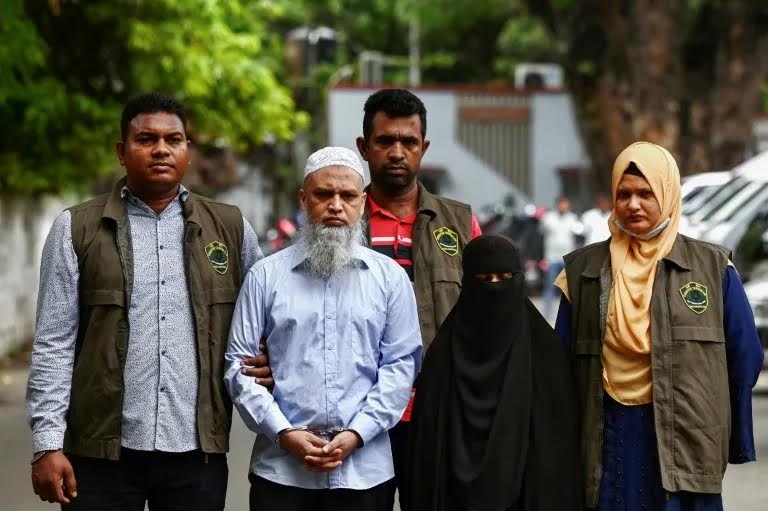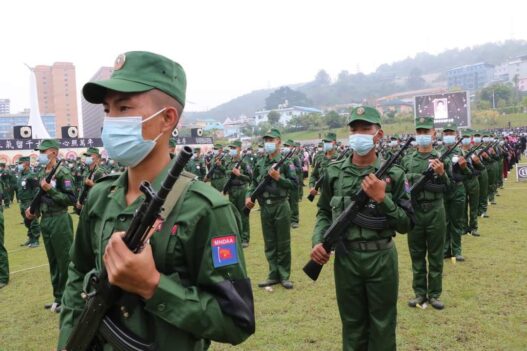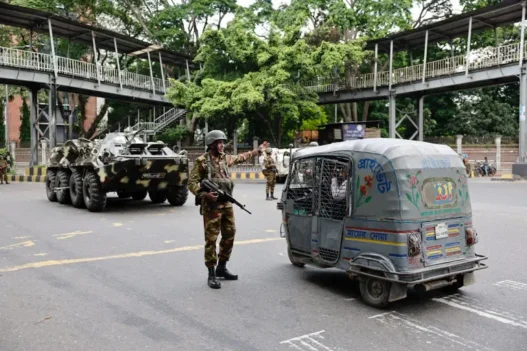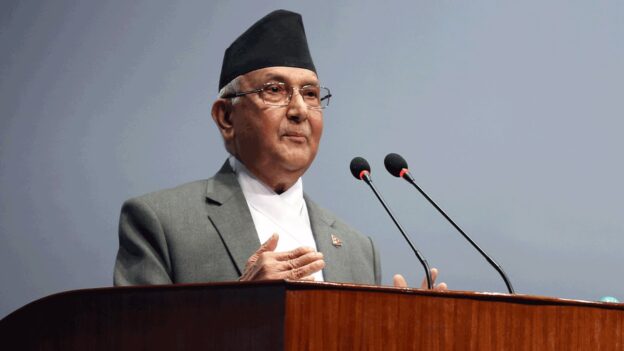Bangladesh police arrested Shamim Mahfuz alias Shamin Mahfuz, alias Manring Murong, the founder of Jama’atul Ansar Fil Hindal Sharqiya, along with his wife from Dhaka, on Friday.
Earlier, the radical leader was arrested in 2011 in connection with a case lodged at Thanchi Police Station of Bandarban hill district for his alleged involvement in extremism.
Later he was freed on bail in 2013 before being arrested again in 2017. He went into hiding after securing bail from the High Court in 2017.
Shamim was accused of helping to run militant training camps in the Chittagong Hill Tracts (CHT), the south–eastern part of Bangladesh.

Credit: Special arrangement
At a press conference on Saturday, Md Asaduzzaman, chief of the Counter-Terrorism and Transnational Crime unit (CTTC) of the police, said that the militant leader and his wife Naznin Sultana were arrested from the capital’s Demra area with a pistol and a huge cache of explosives from their possession.
Shamin, 47, from Gaibandha’s Saghata, was among the top 20 on the merit lists of the humanities stream in the SSC and HSC exams.
After acing the SSC and HSC exams from Rangpur Cadet College, he studied sociology at Dhaka University where he became close to Nathan Bawm, a fine arts student who later formed the Kuki-Chin National Front (KNF), a mainly Christian indigenous insurgent group in CHT.
After his studies at the university, he started teaching at Bangladesh Open University. In the meantime, he began pursuing a course in PhD at Jahangirnagar University, where his research was focused on small ethnic groups living in the hills.
Asaduzzaman said Mahfuz had brokered a deal for the organisation to use training camps run by the Kuki-Chin National Front (KNF).
On October last year the country’s elite Rapid Action Battalion said the “separatist” group, Kuki-Chin National Front (KNF), was providing training and shelter to the members of the militant outfit.
“The militant outfit’s ameer developed a good relationship with KNF chief Nathan Bawm in late 2020. At the beginning of last year, they struck a three-year agreement,” the Rab dirctor told on October in a press briefing.
As per the deal, the KNF was providing shelter, training and other support to the militants. In return, the militant outfit was giving the KNF Tk 3 lakh per month and the expenditure for food, the RAB official added.
The security force said it had launched an assault on KNF and militants in three remote hill towns near the Indian border and arrested dozens of people.
The crackdown forced hundreds of indigenous villagers to flee across the border and take refuge in the northeast Indian state of Mizoram.
Fresh clashes between the KNF and the Bangladesh military killed at least five army persons in the last four months, said the Inter Services Public Relations (ISPR) in their press releases.
However, The KNF rejected any involvement with Jama’atul Ansar Fil Hindal Sharqiya in a Facebook post last year.
The CHT, which consists of three districts Rangamati, Khagrachari, and Bandarban, is a remote region.
The KNF, locally known as the “Bawm Party” is comprised of six members of the Kuki-Chin ethnic group: the Bawm, Pangkhua, Lusai, Khumi, Mro, and Khiang.
Law enforcement agency members said KNF aims to establish a separate state within Bangladesh with nine upazilas of Chittagong Hill Tracts-Baghaichari, Barkal, Bilaichari and Jurachari upazilas of Rangamati and Ruma, Thanchi, Lama, Alikadam and Rowangchhari upazilas of Bandarban hill district.






